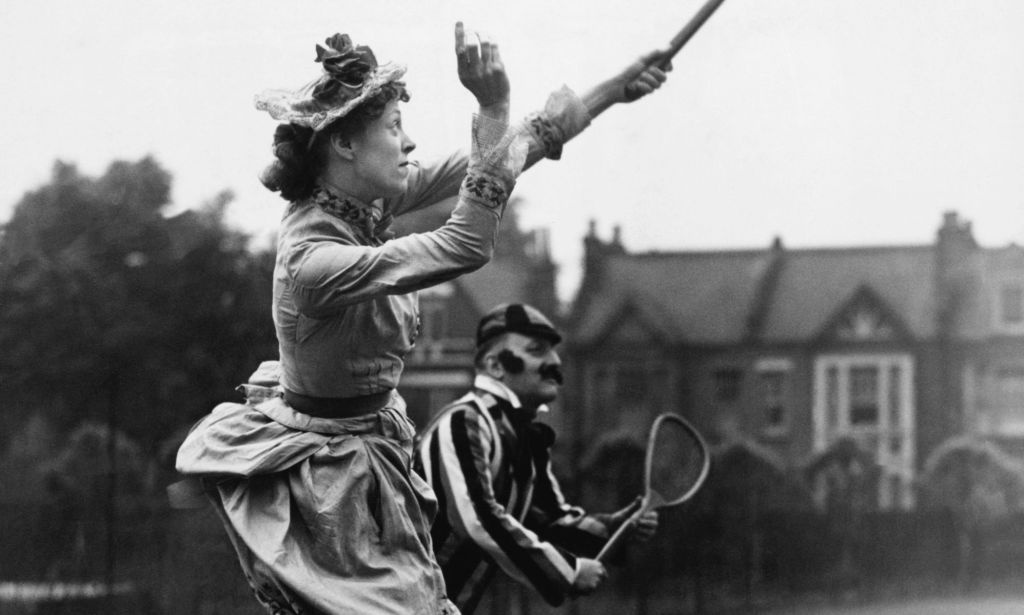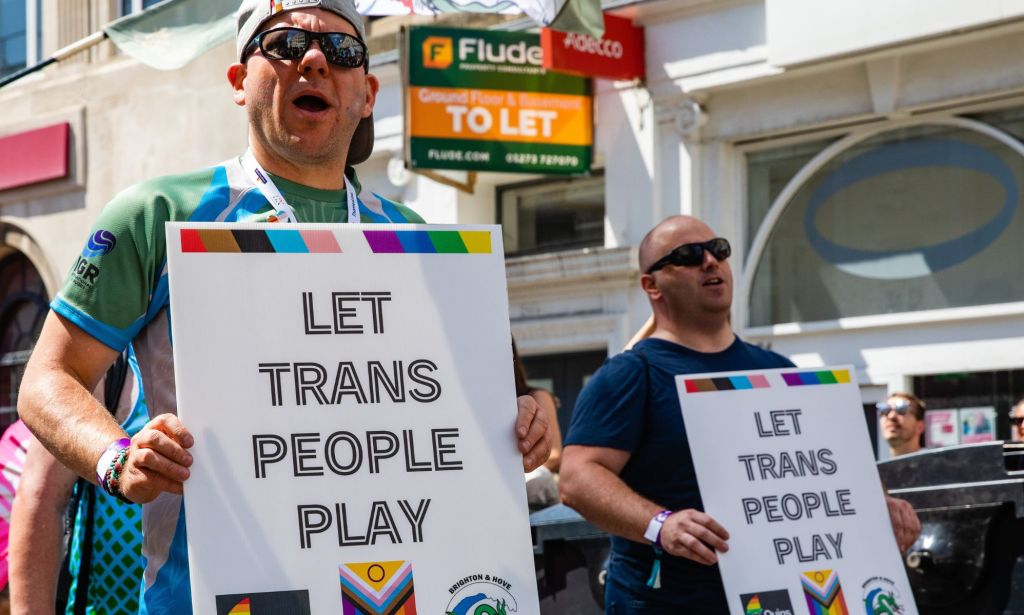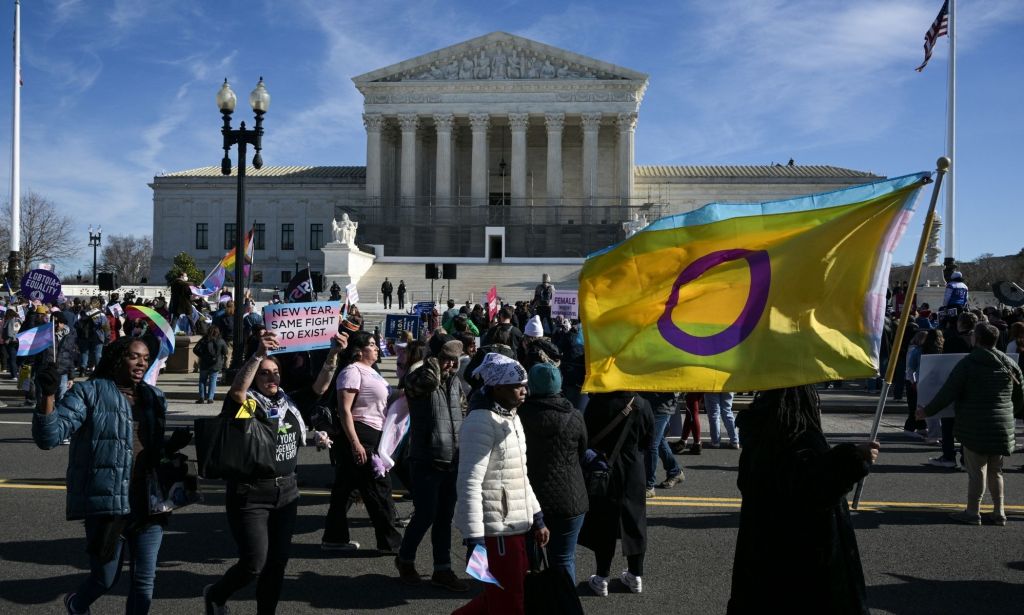Attention Shoppers: Avoid aisle 47 due to high risk of being hit by falling morality and tumbling democratic policies. Clean up required!
November 9 each year is designated as “World Freedom Day.” It commemorates the fall of the Berlin Wall on November 9, 1989. Unfortunately, the United States has never lived up to its billing as “the land of the free,” though it always has been and continues to be the “home of the brave.” This is especially true in this time of Donald Trump’s attempt to terminate our nation’s great experiment.
It is great for chickens and turkeys to be given free range rather than be confined in cages. But Trump’s free rein over our Constitution and governmental agencies will inevitably lead to the end of the United States of America as we have known it for the past 250 years.
Trump is allegedly working toward peace and reuniting families in the Middle East and in Ukraine. Meanwhile, he wages war on North, Central, and South America as he separates immigrant families.
Human and civil rights protections are now unacceptable in the former party of Lincoln.
Trump has more or less attacked every single one of our Constitutional protections, save for the Second Amendment. After all, toxic forms of hypermasculinity require the promotion and use of firearms to keep at bay the intensive psychosocial fear of penetration from bullets, homosexuals, trans people in bathrooms, immigrants, and the female gaze, since patriarchy promises males the right to the aggressive outward intrusive gaze and the mandate to penetrate “others.”
At least 40,000 people were shot in 2025 — more than 110 people a day across the country. And that doesn’t include gun suicides, which have been increasing. Last year saw 14,651 gun deaths; 26,237 injuries; and more than 28,000 firearm suicides, the most on record.
For the second Trump regime, the policy is cruelty, and effectuates this policy through fear and intimidation. Its goal is unlimited power and control. There is never enough wealth or power for Trump, clear signs that he’s an addict, and his disease is progressing.
But I love my country the way I love my coffee: without ICE.
The new Gestapo
Immigration and Customs Enforcement (ICE) officers serve as the regime’s Gestapo force, cracking down not only on undocumented residents, but also on any dissenters of the government’s propaganda.
Chief officials of the regime, including Trump, J.D. Vance, Kristi Noem, and Kash Patel, have libeled slain protester Renee Nicole Good of Minneapolis as a “domestic terrorist,” a “violent rioter,” and a “professional agitator.” They argued that she “weaponized” her vehicle to run over an officer, even when on-site videos do not confirm this and before any in-depth investigation has been conducted.
Good’s death makes it clear what people of color have always understood: Any one of us could be next. Whiteness will not save white people as they once might have believed.
Press Secretary Karoline Leavitt’s daily White House briefings are filled with lies. In July, she decalred, “President Trump is a humanitarian with a big heart.” Cue the laughter.
The press briefings are as nonsensical as the Beatles’ line in “Rocky Racoon”: “Her name was Magill, and she called herself Lil, but everyone knew her as Nancy.”
The U.S. government also fits another Beatles lyric: “Back in the U.S., back in the U.S., back in the U.S.S.R.”
The whims of a madman
A lawless U.S. regime claimed it conducted a “law and order operation” in Venezuela. This is pure unadulterated poppycock. As male dogs piss on everything to mark their territory, Donald Trump pisses on the world order to mark his.
I’m sorry to have to tell this president that he is perpetually on the “naughty list.” No Nobel Peace Prize for murderous war mongers! But the corrupt head of the Fédération Internationale de Football Association (FIFA) presented a fake peace prize to our emotionally insecure president as if he was giving a pony to a child for his birthday.
The physically and psychologically unstable president of the United States has destabilized the world geopolitical order, causing instability in our alliances and raising the question: How stable is our form of government?
If Trump wants regime change that would truly benefit the world community, he should focus on changing the regimes in Russia, Hungary, Israel, and the United States, among others.
Trump interprets “checks and balances” as people and governments writing him large checks so he can increase his bank balances. This was evident recently when he asserted that “The only limit [on my power] is my own morality.”
If we are at the whims of Trump’s “morality,” we’re in serious jeopardy. But as Judy Dench as “M” quipped in the film, Casino Royale, “Arrogance and self-awareness seldom go hand in hand.”
What would Republicans have done if Barack Obama had demolished part of the White House to build a tacky ballroom?
Trump recently announced his “Trump Class” battleship fleet, which must be the boats that are stuck in sleep mode and too heavy to float.
And though Trump declares that his energy policy is based on his fraudulent claim of so-called “beautiful clean coal” and oil as our planet continues to warm and climate-related disasters mount, his governing policy is actually based on gaslighting.
As we suffer incredible increases in summer heat, winter cold spells, and stronger, more destructive and deadly storms, Trump abolished environmental regulations for his fossil fuel buddies. I now refer to “fossil fuels” as “hostile fuels” since they are hostile to the Earth and to all living things.
Does anyone on the right at the very least send their thoughts and prayers to our dying planet?
A textbook fascist
Trump thinks if he yells his lies and false math loud enough, people will believe him when he says he has kept his campaign promises to lower inflation and make life more affordable. “Donald Trump doesn’t talk about kitchen table issues because he doesn’t know what a kitchen table is,” Nicole Wallace stated on MS NOW.
When people talk about government “waste,” “fraud,” and “abuse,” what comes to mind are House Speaker Mike Johnson (D-LA), Vice President J.D. Vance, Elon Musk, Donald Trump and his entire cabinet, right-wing members of the Supreme Court, and most Republicans in Congress.
Johnson said he would lead by following Biblical principles. Where is it written to deny healthcare to those in need?
Trump treats people as if they are temporary, like paper towels he uses and throws away. He is so anti-woke that he can barely stay awake.
I use the term “regime” since Trump follows all 5 points in the authoritarian playbook to control people’s minds as developed by a member of the Ford, Carter, and Clinton administrations, Robert Reich.
Here are the steps, as applied to the Trump regime.
1. Rewrite history
“The Party told you to reject the evidence of your eyes and ears. It was their final, most essential command.” – George Orwell, 1984
The Trump regime censors certain materials and controls government websites, national museums, and public discourse. It claims the “real” and “true” history of the United States along the line of a radical right-wing interpretation. Trump has renamed the “Gulf of Mexico” as the “Gulf of America” and Alaska’s Denali (an indigenous Athabascan heritage name meaning “The High One” since it is the highest peak in North America) back to Mount McKinley.
2. Gut education
The Trump regime censors and bans certain books and other curricular materials; eliminates diversity, equity, and inclusion initiatives; restricts resources for special-needs students; and limits funding for research from institutions of higher education. It is also in the process of eliminating the U.S. Department of Education.
3. Dismantle science
Scientific standards for research include the conditions of “validity” (the research came up with data to prove what it set out to investigate) and “reliability” (outside researchers could use the research methodologies in separate investigations to come up with the same conclusions).
Unfortunately, the Trump regime, under Health and Human Services Secretary Robert F. Kennedy Jr. (who does not have a degree in any scientific field) has thrown standard scientific understandings of research out the window. Instead, he uses unproven or outlier research that confirms his own dangerous conspiracy theories. Kennedy has constructed the acronym MAHA (Make America Healthy Again), which should more accurately be MIDGA (Make Infectious Diseases Great Again).
4. Suppress media
Donald Trump ridicules and dehumanizes reporters who ask questions he does not like. He evicted members of the press from the Pentagon who would not sign an oath pledging only to report what the Pentagon press office orders released under the so-called Department of War Secretary Pete Hegseth.
Trump determines which media outlets can merge or otherwise conduct business by pressuring them to fire reporters and comedians that he does not like. He also restricts press access to the workings of the West Wing.
5. Attack the arts
Donald Trump has taken over the directorship of the historic and honorable John F. Kennedy Memorial Center for the Performing Arts in Washington, D.C., and he has cruelly added his name to the storied institution. In his unauthorized role, he determines which artists perform at the Center and which are chosen for the prestigious Kennedy Center Honors. Unlike under most presidents, virtually no artists or musicians are invited to the White House except some country artists and World Wrestling Association performers whom Trump likes. In addition, to commemorate the 250th birthday of the United States, Trump plans to sponsor an Ultimate Fighting Championship (UFC) cage fight on the White House lawn.
It will always be The John F. Kennedy Memorial Center for the Performing Arts, the Gulf of Mexico, Denali, and the Department of Defense to me.
The new blue triangle
The Trump administration has seriously lowered the standards of service for ICE officers and has reportedly reduced their training from 14 weeks to six weeks.
Nazis forced concentration camp prisoners who were immigrants to wear a blue triangle. These were German citizens who left their homeland after the Nazis took power in 1933 but then returned and thus, were suspected of espionage.
The blue triangle was also forced onto the garments of foreign laborers, other immigrants to Germany who were not considered “Aryan,” and onto the so-called “stateless.” Members of Donald Trump’s regime have inflicted a virtual blue triangle onto the bodies of anyone not born in the United States. The regime is trying to strip birthright citizenship status from anyone whose parents were not born here as well.
And continuing on his racist quest, Trump wants to return the name of the football team to “Redskins.” Hey, why not call it the “White Supremacists” or the “Racists”?
How many diversions from the Epstein story will Trump to throw against the wall, hoping one will stick? Members of MAGA and the Trump regime must understand that those who live by conspiracy theories are also brought down by conspiracy theories.
Let’s save our country
Even if you claim, “I don’t do politics,” please understand that politics does you.
Many of you buried your heads in the sand, and now here we are, back in the 1930s. If you’re not angry and active, then you’re either sleeping or in collusion with a fascist takeover of the U.S. Lift your heads up, breathe, and do something!
Patriarchal heteronational Christian white supremacy is a major threat to democracy, and democracy is the primary antidote.
There was enormous tension in the Earth before great mountains rose up. Now there is enormous tension in our land as We the People rise up in unity and strength to steer our country back on track toward a more perfect union.
According to the words of one of my heroes, the great Stephen Colbert, who is helping me get through these trying times, “Despair is a victory for hate. Hate wants us to be too weak to change anything… Love does not despair. Love gives us the courage to act. Love gives us hope that change is possible. Love allows us to change the script.”
So, the vaccine for MAGAtitis is speaking out and acting non-violently to reverse and heal the harm done to our body politic. The country doesn’t run on Dunkin. Rather, it runs on the commitment and action of good people joining together to uphold the light during times of eclipse attempted by members of MAGA. It takes us all.





